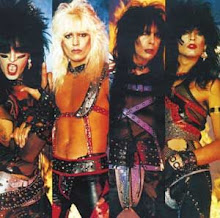Analysis of Quote:
"You don't talk with that man-- you listen to him" (insert page # here).
This quote is representative of the "inner voice" that everyone possesses that only they can hear and understand. Kurtz is a human symbol of the inner evil of Marlow, so Kurtz's voice represents Marlow's inner voice. By saying "you listen to him," the narrator is explaining how one cannot speak aloud with their inner voice but can only listen to it for themselves. Because of this, Marlow can only to listen to Kurtz, the personification of his own "inner voice," but he cannot use his own voice to communicate. By saying "You don't talk with that man" (meaning, you don't talk with your inner voice) the narrator could also be explaining how one cannot talk to or reason with their inner voice since it "says what it wants to say" and there is nothing a person can do to control their thoughts.
Analysis of Symbol:
Evil spirit in the boiler
The evil spirit in this scene is a symbolic representation of tribal African culture. It is referring to the rituals done by different tribes regarding faith, good and evil, morality, etc. By other cultures, European colonists in this book, these rituals are viewed as strange and foreign, and they are not understood for what they are. The boiler containing the evil spirit symbolizes the destruction of the culture of the native people by the European colonists whose main goal is profit through the sale of ivory. It represents the evil selfishness of the colonists, Mr. Kurtz in particular, that he has the capacity to destroy a culture with complete lack of regard for his own personal gain.
Reflection:
I think I actually like this blog assignment because it gives me a place to talk about the extreme amount of dislike I have for this book and get credit for writing it. First of all, I read the book legitimately from beginning to end twice, and I still am basically clueless about it. It took me an entire day to read it through the first time, and I had to set my alarm every 20 minutes so I would wake up since I fell asleep about after every two pages. I just could not grasp the story at all and I spent most of my "reading" time just staring at the words on the pages. The word choice, the plot itself, and the tiny ancient-looking font all made it incredibly painful to read. I don't know if it was vague or just worded in a way that didn't make sense to me, but I just could not seem to see a point to the story at all. The only reason why I'm able to write this blog is that I remember some of the things we discussed in class. The best thing that I found about this book is that after reading it, I will never complain about another book we read in class. It gave me a much greater appreciation for the other books that I didn't necessarily enjoy reading.


4 comments:
I agree with your statements about the "inner voice." Although the quote is literally talking about Kurtz it represents a person's (Marlow's) inner voice and how you cannot talk back to your voice of "reasoning."
Well, for one I agree with the notion that the quote of listening to Kurtz is representative of the evil within Marlow. In fact, when Marlow snags him crawling away in the night, Kurtz more or less seems to plead his case to Marlow. "I've got great plans, just let me go and I'll be filthy rich and loving it, I promise." (rough paraphrase) Marlow could also have made his fortune fairly well if he stuck around in there, but he would have also become submerged entirely in darkness. At that moment, perhaps he was actually fighing himself and the urge to give in to darkness. After all, he did mention something about his hesitating foot over the cliff Kurtz leaped off.
Your remark on the......density, shall we say, of the book...well, I agree it was pretty boring, I personally felt exhausted physically after reading it, but as to the vagueness I'd say perhaps Conrad wanted to make it seem as if Marlow was recanting not quite a fairy tale, but something he wasn't quite sure was real, something he himself couldn't really understand. I mean, Conrad's basically said everyone's got a miniature Kurtz in their head telling them to massacre civilizations and amass great wealths at any expense, so he's got to make it believable from someone else's point of view. The story would be crazy if, say, Vonnegut made Kurtz into some mental guy with some evil laugh announcing himself ruler of Africa. Perhaps Marlow was meant to be sort of rambling about some strange time long past that's sort of like a nightmare to him. (Though I don't think it was actually intended to induce a dreamlike trance on its readers.)
I agree with your analysis of the evil spirit in the boiler room. I also think it shows how the native's culture and beliefs have been turned against them, in order to make them good workers. Marlow basically took advantage of the fact that the man was uneducated and could be readily influenced by his made up story.
Try to be a bit more honest with your reflection next time.
Post a Comment